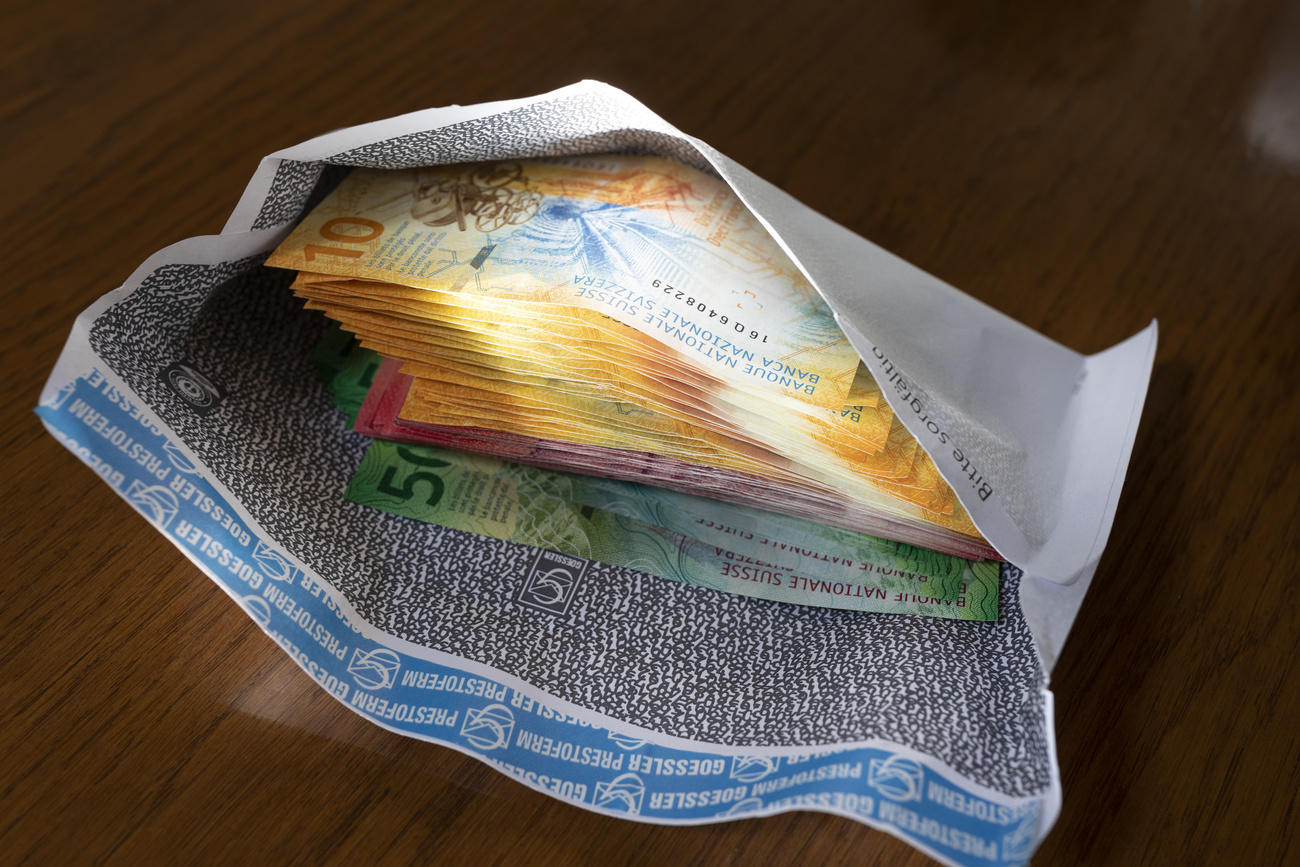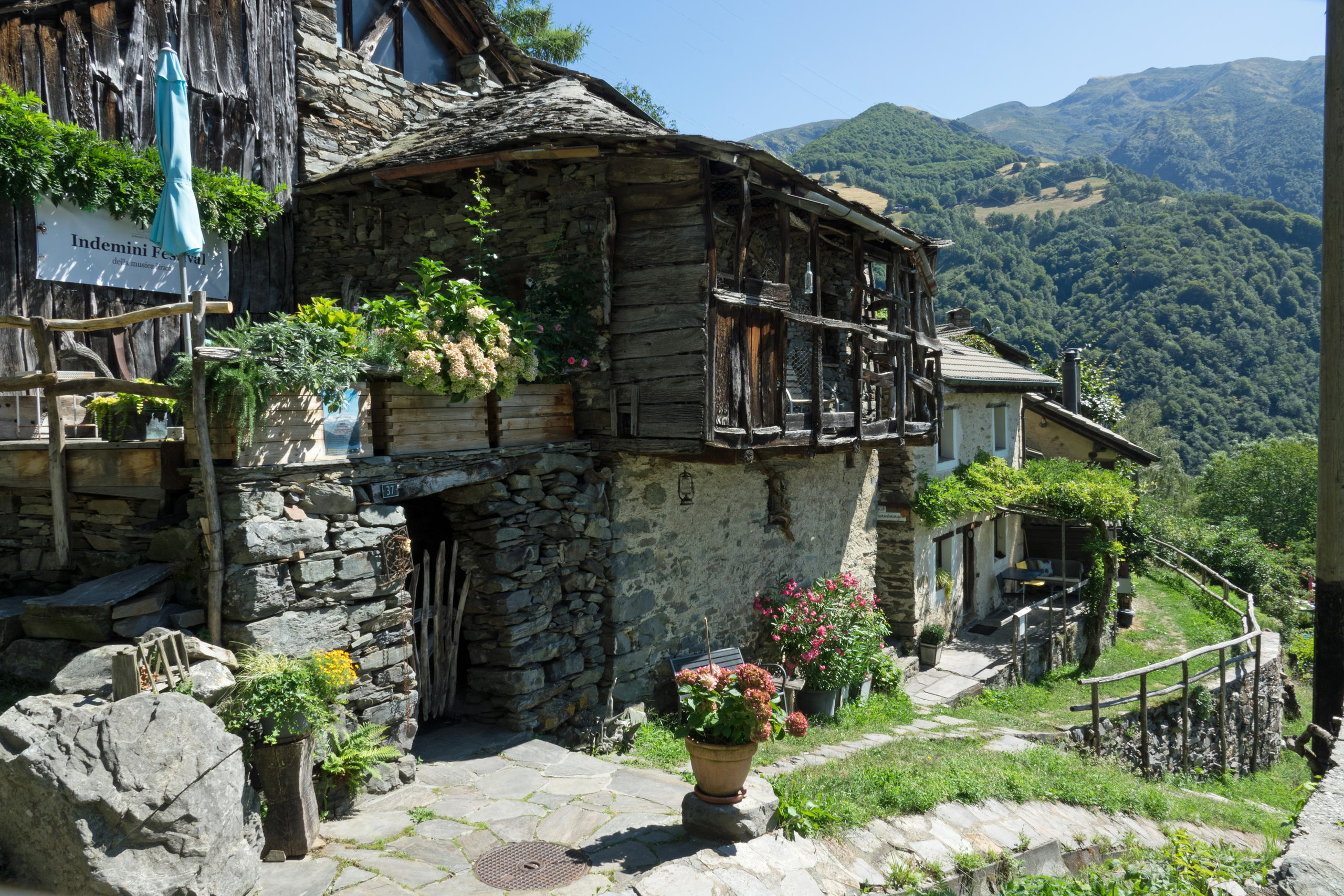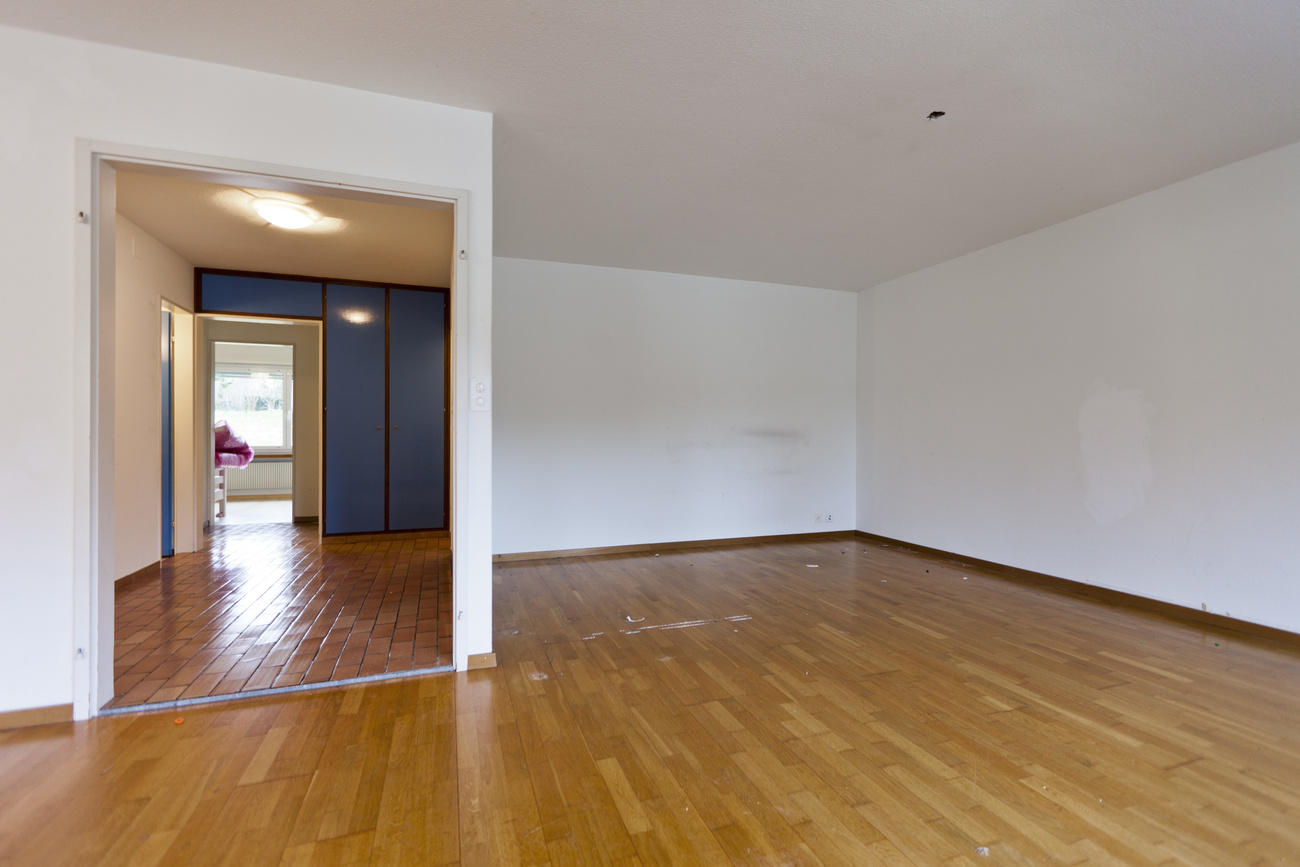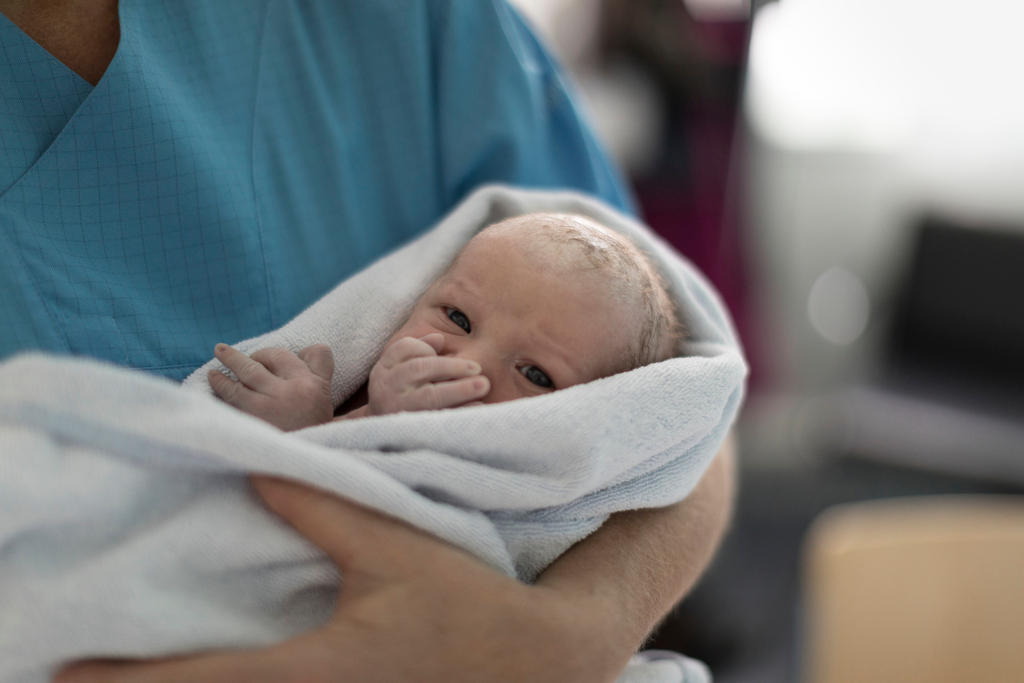Swiss villages bribe people to come, stay and breed

Small towns often struggle to retain people, which affects key services and attractions. In the latest Swiss scheme to prevent an exodus, a village near Lucerne is paying youngsters to stay.
GrossdietwilExternal link, a rural community about an hour northwest of Lucerne, has lots of empty apartments and not enough residents to fill them. So it’s come up with an idea to entice young people to stay: CHF1,500 ($1,510) in cash for those who opt to remain in Grossdietwil – if they’re under 30 and it’s their first home away from their parents.
So far, four first-time heads of household have taken advantage of the offer announced in July’s municipal newsletter. The bonus easily covers a month’s rent, as studio apartments in the small town start at about CHF950/month; two-bedroom flats in a new building go for about CHF1,450.
“Each bonus is a sensible investment,” mayor Reto Frank told the Willisauer BoteExternal link, a regional newspaper. “The youth are our future. They enrich our village life with fresh and cheeky ideas; they join clubs and are the foundation of new local families.”
Grossdietwil – population 865 – isn’t alone in its surplus of housing. Across Switzerland, there are more than 75,000 empty homes – with especially high vacancy rates in southern Switzerland and across the central plateau.
CHF70,000 for a family of four
With only about 200 residents, the mountain village of AlbinenExternal link is offering even bigger rewards to settlers.
In November 2017, its citizens voted “yes” to a plan to attract newcomers by paying them CHF25,000 – strings attached. For example, they have to be under 45 and able to invest at least CHF200,000 in real estate. The bonus – CHF25,000 for adults and CHF10,000 for children – is also valid for locals who invest in a home.
Mayor Beat Jost’s goal was to have five new families with children settle within five years. Today they’re “on the right path” says Jost.
New in town are a couple as well as a family with two children and a baby on the way. In addition, several locals have committed to buying and/or renovating houses: three singles, a family with a child, and a couple that’s now expecting a baby.
“We’re pleased to see how the village has been swept up in a feeling of optimism. Initiatives and activities through various clubs, companies and individuals have also contributed,” Jost told swissinfo.ch, citing developments such as a new herbal and cultural trail, a new holiday home businessExternal link and a new autumn festival.
“Albinen is alive! And that’s exactly what we wanted,” says Jost.
Baby bonus
Never mind bibs, booties and bottles – parents in many cantons get cash gifts for new babies. Since the start of this year, canton TicinoExternal link has been paying CHF3,000 for new babies or newly-adopted children. A stipulation is that the annual family income doesn’t exceed CHF110,000.
Part of the impetus was the fact that deaths had been outpacing births. In 2018, Ticino registered 3,152 deaths and 2,556 births. In the first half of 2019, there were 1,593 deaths and 1,151 births, which of course doesn’t account for conceptions since January.
“Recent projections show that in 2040, one third of the population will be retired. It is crucial to maintain a certain equilibrium throughout the generations,” Paolo Beltraminelli, the director of Ticino’s health and welfare department, told swissinfo.ch.
Several other places offer a similar bonus for people who have children. In central Swiss cantons of Lucerne, Schwyz and Uri – as well as in mainly French-speaking Fribourg, Jura and Neuchâtel – parents get CHF1,000-CHF1,500. The rate is up to CHF3,000 in Geneva, Valais and Vaud.

More
For sale: Rustic cottage with lake view. Price: CHF1

In compliance with the JTI standards
More: SWI swissinfo.ch certified by the Journalism Trust Initiative












You can find an overview of ongoing debates with our journalists here . Please join us!
If you want to start a conversation about a topic raised in this article or want to report factual errors, email us at english@swissinfo.ch.